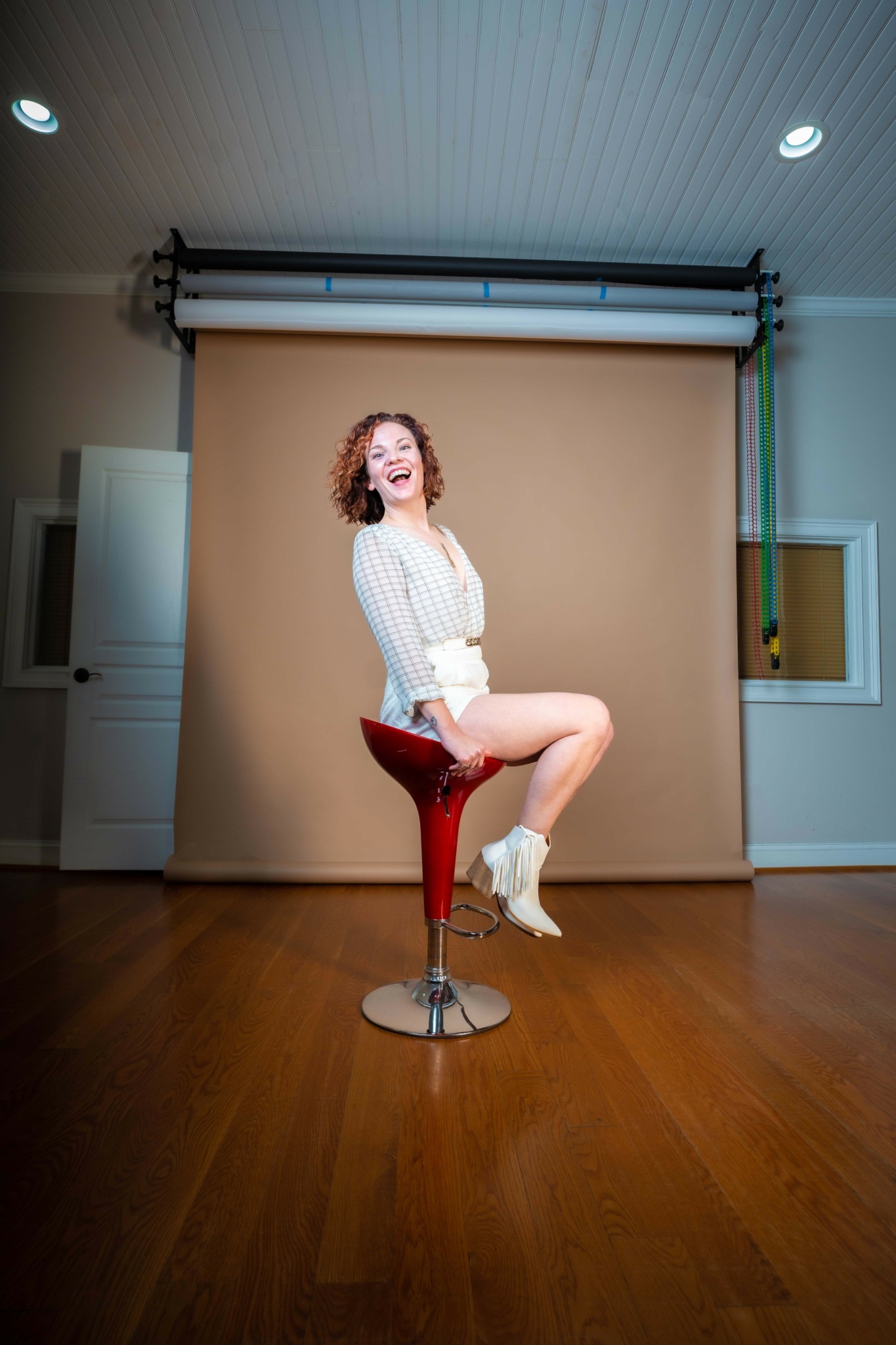We recently connected with Veronica Dress and have shared our conversation below.
Alright, Veronica thanks for taking the time to share your stories and insights with us today. Can you share an important lesson you learned in a prior job that’s helped you in your career afterwards?
My very first job was in a transitional living home for young adults experiencing homelessness. In many ways, this job changed the trajectory of my life. I was tasked with facilitating our Life Skills curriculum for any new residents (which was hilarious, as a 22 year old with very few life skills of my own), and as we waded through the material together, I learned how to adapt. An anxious human, I used to cling to following the guide we were given for the program. I quickly learned that, actually, what folks really need is a space to share, be curious, show up authentically, and have their boundaries respected and honored. Life and learning rarely go “as written.” When I look at the work I do now as a sexuality educator, coach, and intimacy director for theater, I see all of these themes so clearly. What makes me excellent at what I do isn’t the fact that I know how to facilitate an engaging conversation or that I can choreograph a killer on-stage make out (I can). Rather, it’s that I meet every actor, client, and student with the curiosity, adaptability, and trauma-informed approach I learned at that program in Nashville, TN. People deserve spaces where their boundaries and autonomy are not viewed as a burden, but celebrated. That’s been the thread in all of my work.
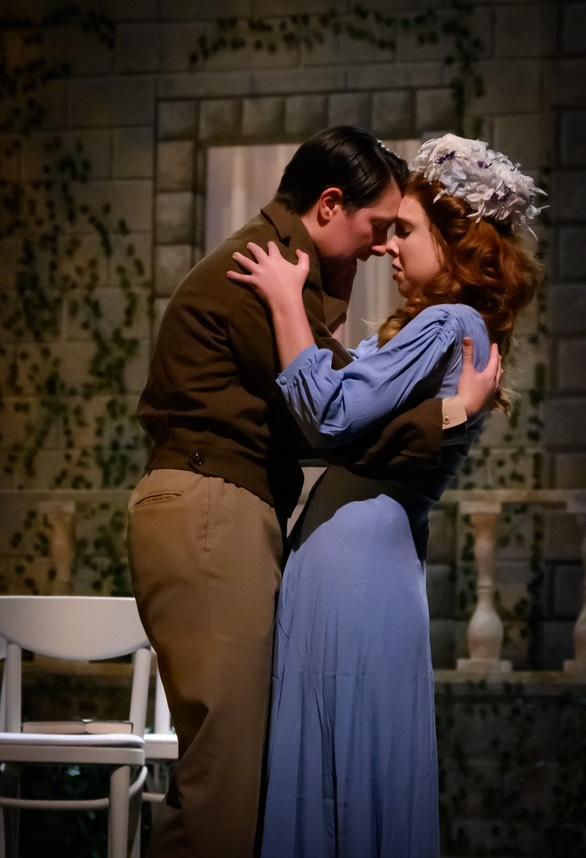
As always, we appreciate you sharing your insights and we’ve got a few more questions for you, but before we get to all of that can you take a minute to introduce yourself and give our readers some of your back background and context?
I’m Veronica Dress, a certified sexuality educator, coach, and intimacy director for live performance. I like to say I am the heart + curls behind my business, The Dress Rehearsal. As a life-long theater kid, I am a sucker for the idea of the rehearsal space. In a world of “fake-it-til-you-make-it” and “everyone-knows-what-they’re-doing-but-me,” a rehearsal space is a sweet exhale. It’s a place where you get to be curious, deliciously imperfect, learn, and try out new ways of thinking + being. It’s in that place of play and creative approaches that we give each ourselves permission to do things differently– with more joy and fewer “should”s hemming us in.
I come to this work having grown up queer (though I didn’t realize ’til later) and deep in Catholicism’s brand of purity culture. I left high school with no sex ed, but with plenty of anxiety and fear that everyone seemed to just… know what to do in this part of life. That’s a lie— I got one week in health class about reproduction and watched The Miracle of Life. Middle school wasn’t much better. There, I went to Chastity day.
No, you didn’t misread that. It was a day for all 7th graders to learn about abstaining from sex until marriage using tape, chewed gum, and crumpled flowers as metaphors for our sinful sexual acts. It ended by all the girls (just the girls) signing letters to their future husbands, pledging their virginity and obedience.
This was the scene set as I began my time at Planned Parenthood. A fresh sexuality educator, I had been working at shelters for young adults when I realized the huge role a shame-free, affirming, and nonjudgmental space could be for queer youth navigating life. When the sex educator job appeared, I somehow convinced them to hire me, teach me all the sex ed I never received, and then teach me how to teach it to others. It was a tall order, but my commitment to young people, justice, and firsthand understanding of how deeply valuable shame-free sex ed could be secured the role. And it changed everything.
I started learning about sexuality, bodies, pleasure, gender, and queerness for the first time. I was coming home from work and teaching my roommates all the sex ed I was getting at work because they, too, never got this info in school. Slowly, I realized that my roommates and I weren’t the only grown adults who were without the info and sex-positive spaces we deserved. I started having these conversations in living rooms, at bars, on the dance floor, and backstage at my burlesque shows. The seeds of The Dress Rehearsal were planted there in Nashville, grew through the many certifications + trainings that followed, and have been blossoming in Durham ever since.
Now, through sex + intimacy coaching with individuals and partners, group education for adults, training therapists in sex-positive practices, and even through my work creating consent-forward theatre spaces, I work with folks exploring their sexualities in countless ways. Folks embracing their pleasure after living through purity culture’s BS, people discovering their LGBTQ+ identities, partners looking to reconnect in and out of the bedroom, individuals seeking to bring more pleasure and fun into every part of their lives, actors looking to tell rich intimate stories onstage while protecting their personal autonomy, and so many more.
The through-line weaving through this admittedly multi-hyphenate career is this belief: You are deeply deserving of confidence + joy in the most intimate parts of your life, free from society’s limiting, prescriptive, and shame-based messages. Whether we tell that story on stage or in the bedroom, the spaces I hold will protect that truth fiercely so that you have space to explore + create your most authentic, pleasurable life on your terms. Plus? We’ll have fun along the way.
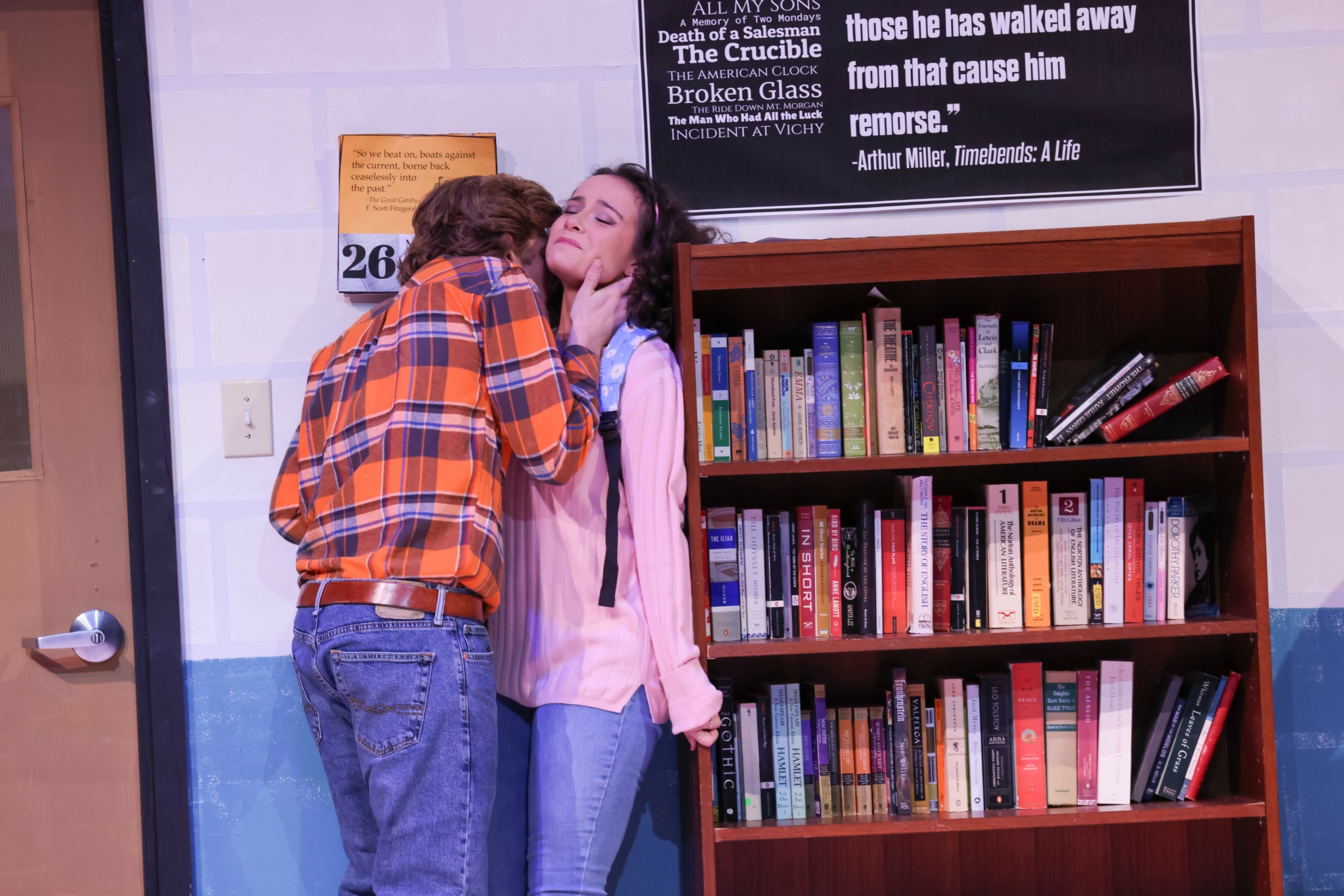
What can society do to ensure an environment that’s helpful to artists and creatives?
The most foundational thing that society can do to support artists is to work for economic justice and to fundamentally shift the ways we value art as labor. I am surrounded by creatives who are pushing through draining 9-5 jobs in order to be able to survive, when their art is demanding to burst from inside of them. If we continue to devalue art and the artists in our society, liberation, empathic communities, and justice will be forever delayed.
In my little sphere of influence, I see the role of an intimacy director (yours truly) as one crucial way to create thriving creative ecosystems in the world of live performance and film. Historically, theatre has cultivated dubious and manipulative power dynamics when it comes to casting, choreographing, and its theoretical approaches to the work. “If you’re not comfortable doing the sex scene, there are hundreds of other people who auditioned that will happily do it,” “I don’t want to be labelled as a ‘difficult actor’,” and “sacrifice yourself for the art” are all too familiar phrases that echo through rehearsal rooms like ghosts.
The reality is that people make bolder, more compelling acting choices when they know their boundaries and autonomy are respected. As an intimacy director, I serve as choreographer for scenes of physical intimacy, hyper exposure (both physical and emotional), and nudity. I am also an advocate for the cast and crew in creating art that lives at the intersection of compelling, honest storytelling and consensual, boundary-forward practices.
Intimacy directors are not theatre’s HR, or even there to “ruin the fun.” In fact, most of the feedback I receive from directors and actors alike is how much fun and freedom they felt to collaborate and create in scenes that are otherwise intimidating to tackle. Because, even theatre folk are existing in our sex-negative, shame-based culture of sexuality. Our personal contexts show up in the room with us. In order to create thriving ecosystems of creativity, we need to build holistic approaches to the work that see actors as more than vessels for the story. Our ecosystems can not thrive when we sacrifice our agency, nervous systems, and bodies to the point of burn out. Intimacy direction offers another way (and the sex scenes will look so much better, I promise you).
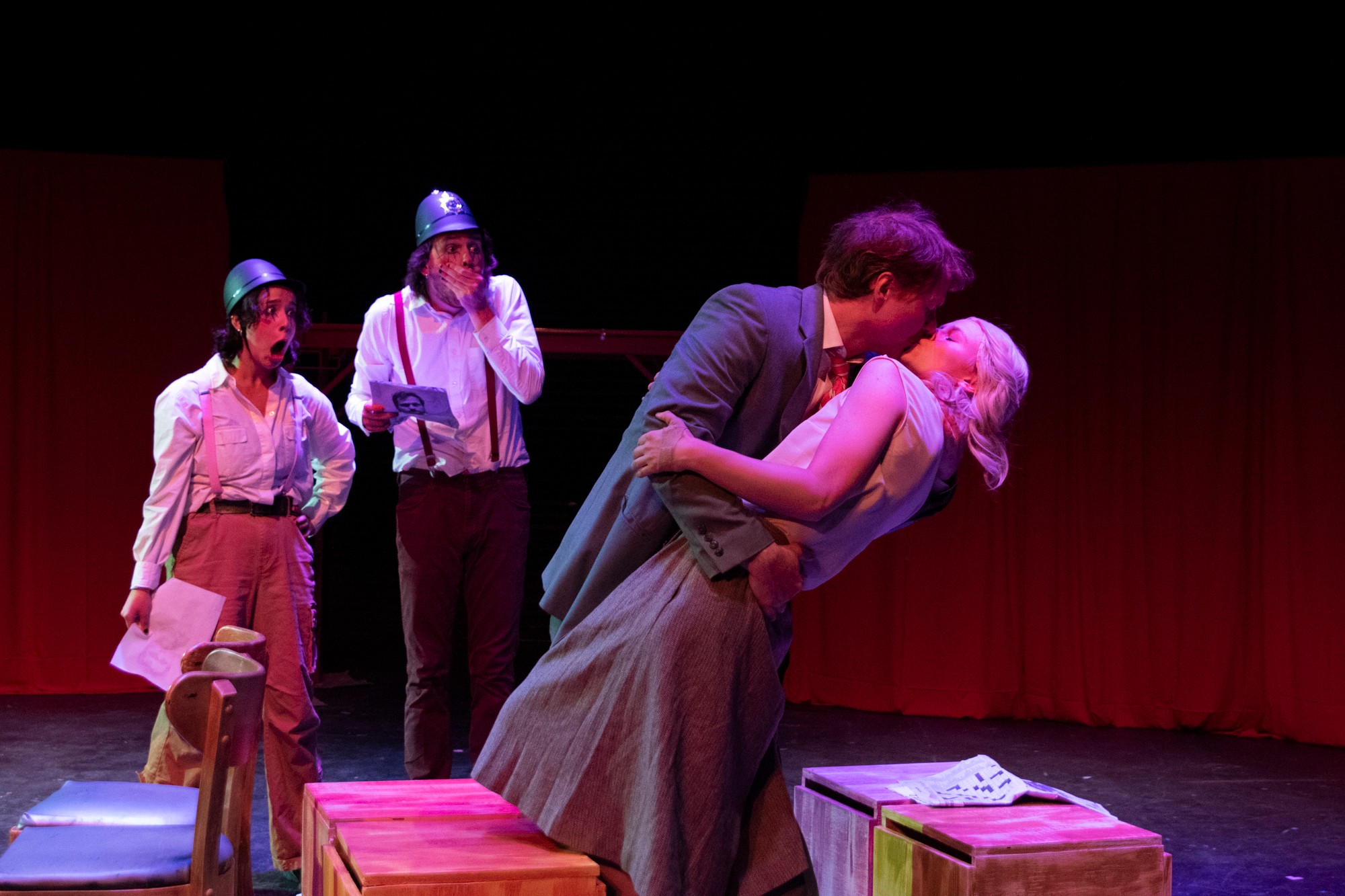
For you, what’s the most rewarding aspect of being a creative?
It’s probably cheesy to say everything, yes? As a performer, I thrive off of the connection with an audience (especially in burlesque, where the audience is your scene partner). As an intimacy director and choreographer, it is watching actors really enter into the storytelling in a fully embodied way. Collaborating to find a way to tell the story truthfully while not sacrificing the actors’ boundaries. Seeing the ways actors go from nervous as hell to stage the sex scene to laughing and being totally in flow. The moment where you slightly adjust the choreography and the heavens open up and everything breathes a, “oh, there it is!” Telling joyfully queer stories on stage. Helping burlesque performers show up in full-bodied ways on stage, taking up space and demanding we explore their sensual journey with admiration and longing on their terms.
In short, the magic place where bodies and selves show up fully.
Contact Info:
- Website: https://www.dressrehearsal.space
- Instagram: @the.dressrehearsal
- Linkedin: https://www.linkedin.com/in/veronicadress/
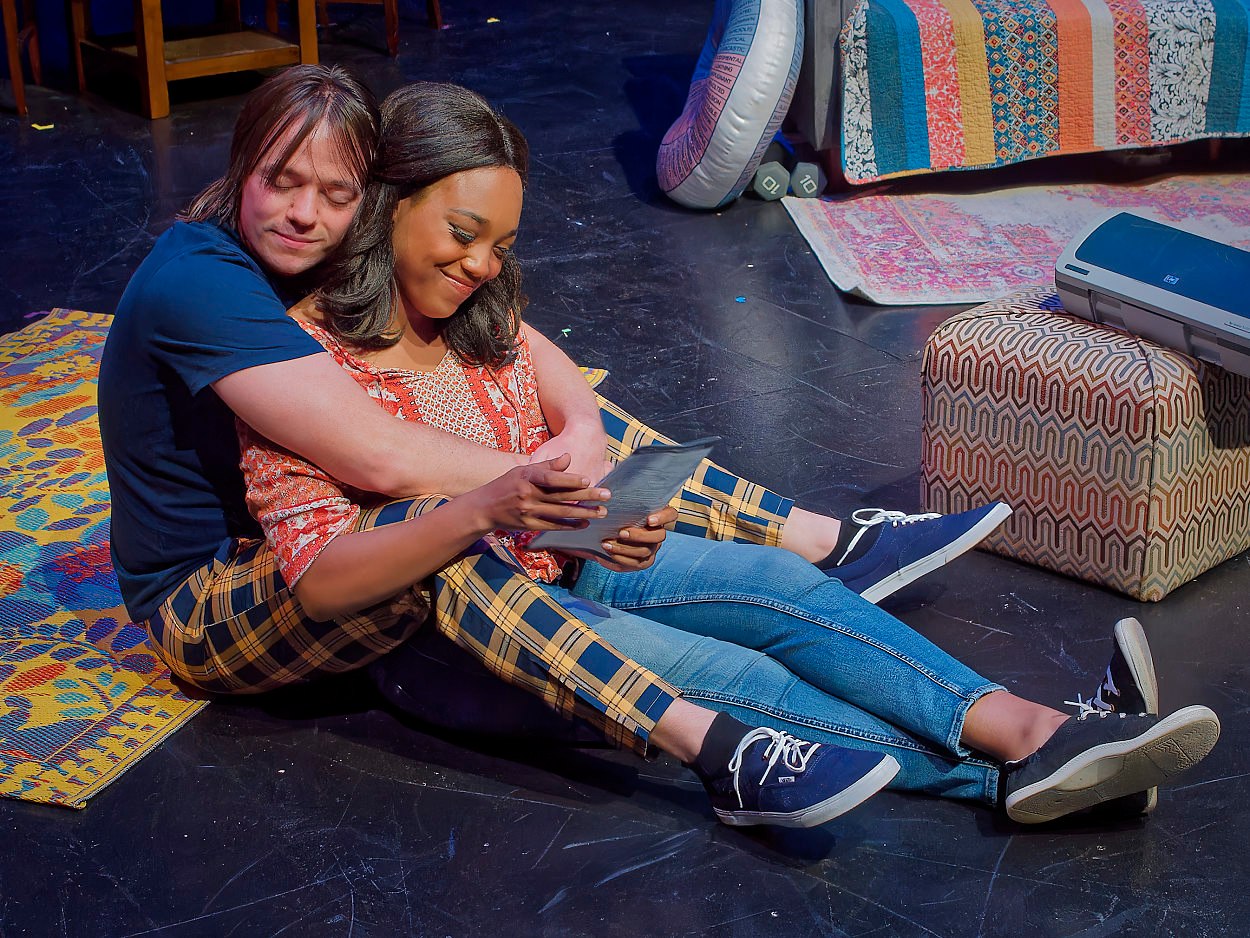
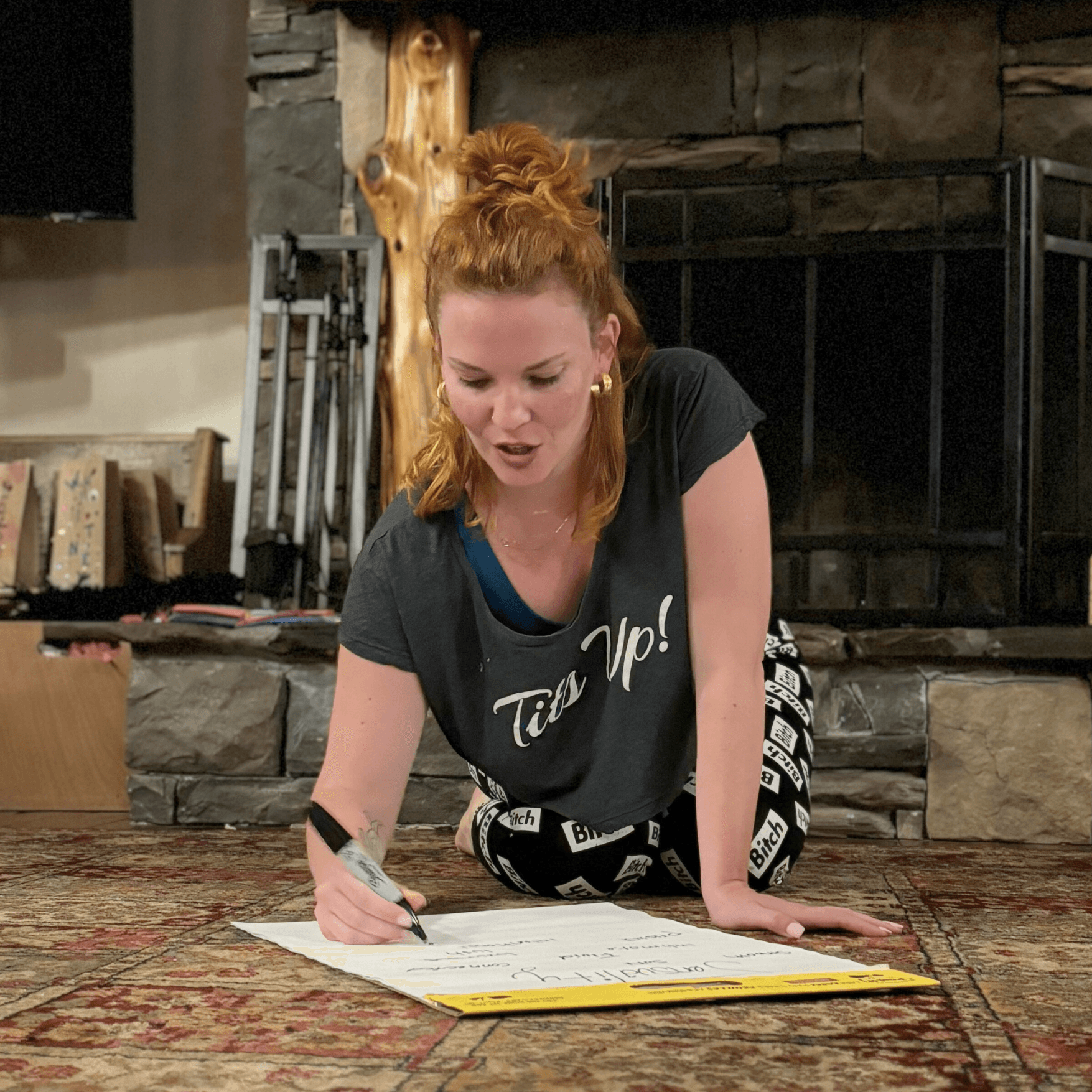
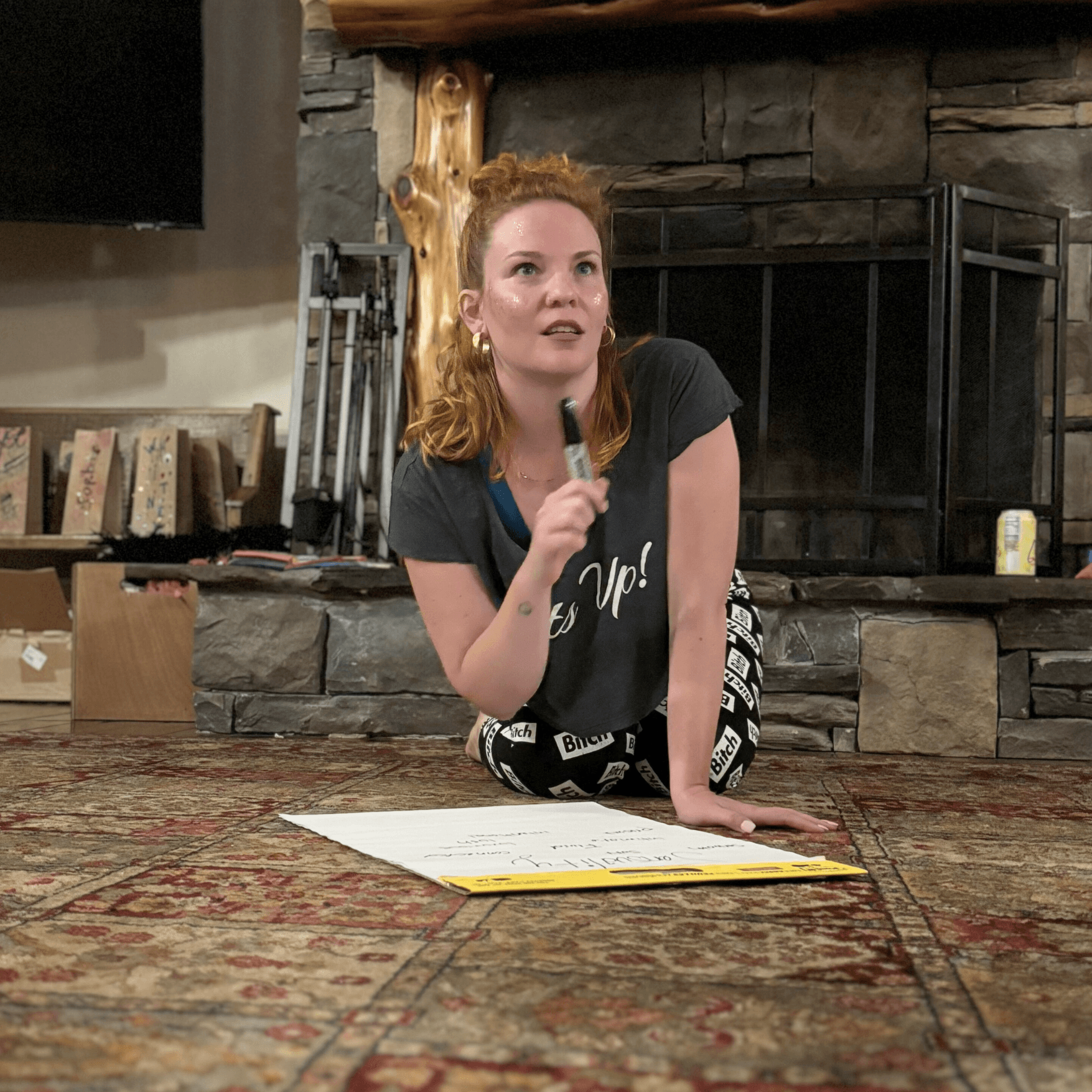
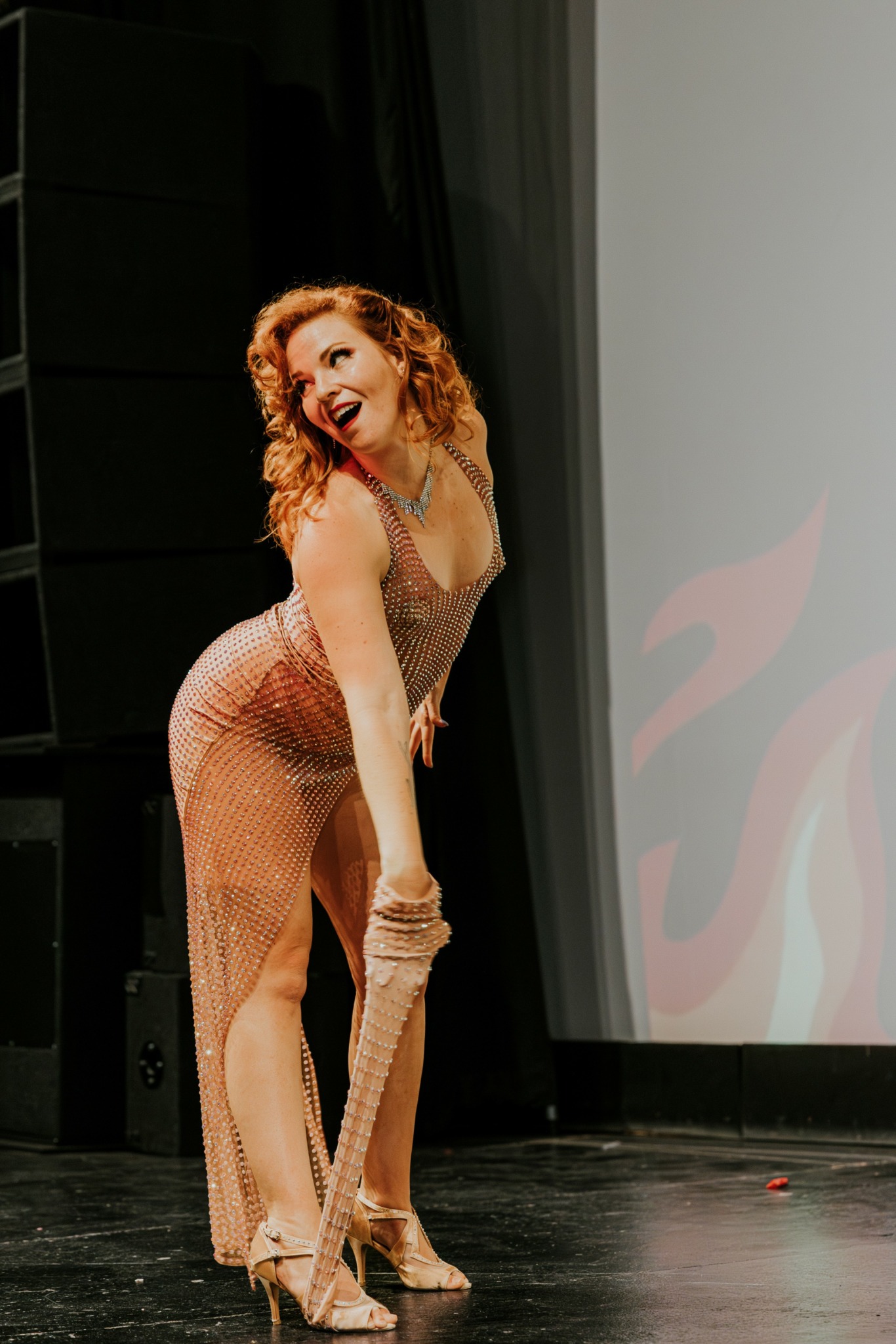
Image Credits
Much Ado About Nothing, Meredith College. Photo by Media by Car
Ex-Boyfriends, Burning Coal Theatre. Photo by Kevin Lord
John Proctor is the Villain, UNC Kenan Theatre. Photo by Ken. A Huth | Huth Photo
39 Steps, Boy with Box. Photo by Lucy Smithwick


